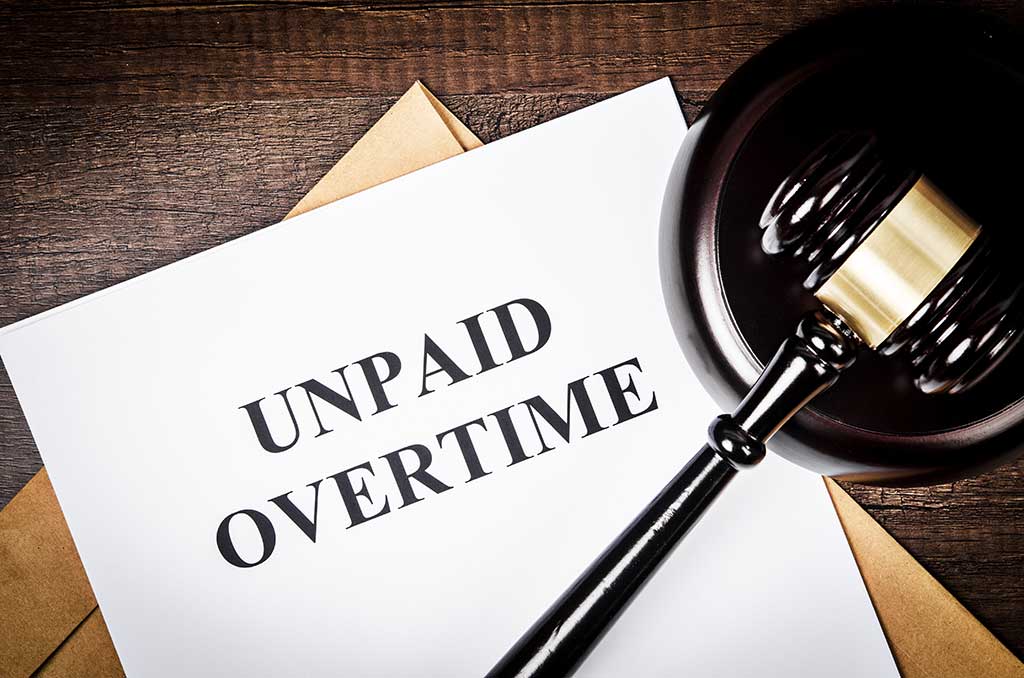
-
Posted By Sirmabekian
-
2022
-
0 Comments
Your employer is likely legally bound to provide overtime compensation if you’re spending longer than 8 hours per day or 40 hours per week at work. If your company has failed to pay you overtime wages, as mandated by Californian wage and labor rules, you might be entitled to collect your unpaid reparations by pursuing an overtime pay lawsuit. Read on to learn how to file a claim for unpaid overtime in California.
What Constitutes a Violation of Overtime Laws in California?
As per Labor Code 510 and the Industrial Welfare Commission Wage Orders, you might be entitled to reclaim your unpaid overtime wages either by submitting a labor department complaint or suing your company if they broke California’s wage and labor regulations. If an employer violates Californian overtime laws, they can be sued for:
- Incorrect misclassification of employees as exempt from overtime wages (e.g. office workers, commission-earning workers, and private contractors)
- Not paying overtime compensation for work exceeding eight hours per day
- Not paying overtime wages for labor exceeding 40 hours per week
- Not paying overtime wages for labor exceeding six consecutive days or more
- Forcing a worker to labor through a meal break that was not reimbursed
- Forcing a worker to put in unofficial, off-the-clock hours
Does Suing for a Small Sum of Overtime Wages Make Sense?
Numerous employees believe that if they are merely due a couple of hundred bucks, it’s not worthwhile to pursue a lawsuit. However, in lawsuits pertaining to unpaid overtime wages, the employee may well be entitled to get their owed overtime wages, on top of interest and legal expenses.
According to U.S. regulations, any business that fails to follow the rules for overtime pay as mandated in the Fair Labor Standards Act (FLSA) is responsible for compensating the aggrieved employee for any unpaid overtime wages. The employer might also be Iiable for extra monetary penalties in an amount equivalent to the original claim.
Employers who fail to compensate a worker for all hours worked may be exploiting other workers too. It’s likely that several workers may also have been victims of employer violations of the Californian labor regulations. This can lead to winning a class action lawsuit comprising multiple allegations from multiple workers about their unpaid overtime compensation.
Is There a Deadline for Initiating an Unpaid Overtime Lawsuit against My Employer?
The statute of limitations period for wage and labor litigation in California is generally three years from the day of your employer’s latest overtime pay violation.
How Much Will I Be Compensated in an Unpaid Overtime Lawsuit?
Usually, you would be entitled to reclaim your unpaid earnings, extra interest on your unpaid earnings, court fees, and legal expenses in a reasonable amount. If your employer infringed the FLSA’s rules on national labor regulations, you could also be entitled to a twofold compensation or monetary damages equivalent to your unpaid earnings.
Will There Be Repercussions at Work for Filing an Unpaid Overtime Lawsuit?
In California, employers are prohibited from taking punitive action against employees who exercise their legal rights. An employer can be sued for retaliation or wrongful termination if they punish, discriminate against, or fire an employee in retaliation for them reporting any wage or overtime violations.
 English
English Spanish
Spanish